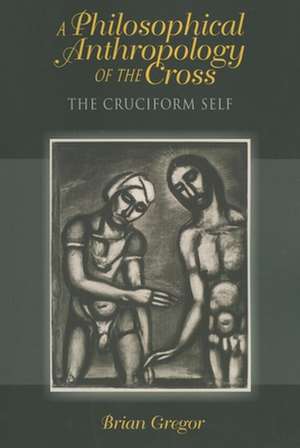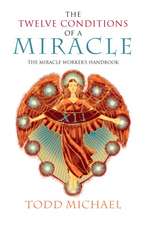A Philosophical Anthropology of the Cross – The Cruciform Self
Autor Brian Gregoren Limba Engleză Paperback – 17 mar 2013
| Toate formatele și edițiile | Preț | Express |
|---|---|---|
| Paperback (1) | 223.92 lei 6-8 săpt. | |
| MH – Indiana University Press – 17 mar 2013 | 223.92 lei 6-8 săpt. | |
| Hardback (1) | 477.39 lei 6-8 săpt. | |
| MH – Indiana University Press – 17 mar 2013 | 477.39 lei 6-8 săpt. |
Preț: 223.92 lei
Nou
Puncte Express: 336
Preț estimativ în valută:
42.85€ • 44.74$ • 35.46£
42.85€ • 44.74$ • 35.46£
Carte tipărită la comandă
Livrare economică 04-18 aprilie
Preluare comenzi: 021 569.72.76
Specificații
ISBN-13: 9780253006721
ISBN-10: 0253006724
Pagini: 278
Dimensiuni: 151 x 224 x 21 mm
Greutate: 0.41 kg
Editura: MH – Indiana University Press
ISBN-10: 0253006724
Pagini: 278
Dimensiuni: 151 x 224 x 21 mm
Greutate: 0.41 kg
Editura: MH – Indiana University Press
Cuprins
Acknowledgments
List of Abbreviations
1. Philosophy, the Cross, and Human Being
Part 1
2. The Hermeneutics of the Self
3. Faith, Substance, and the Cross
4. The Incurved Self
5. The Anthropological Question
Part 2
6. The Concreteness and Continuity of Faith
7. The Capable Human Being as a Penultimate Good
8. The Call to Responsibility
9. Reflexivity, Intentionality, and Self-understanding
10. Religion within the Limits of the Penultimate?
Notes
Select Bibliography
Index
Recenzii
"Makes a sustained contribution to the very important debate over the proper space between philosophy and theology. Original, well researched, beautifully written, and provocative." Kevin Hart, University of Virginia
Notă biografică
Descriere
Offers a bold and original view of what philosophical anthropology might look like













